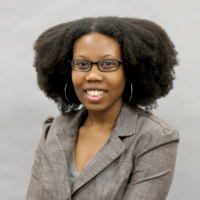August 28, 2024
Community Builders: A Critical Step to Keeping Students Safe and Healthy
Whatever our race, background, or zip code, we all want our children to know they can live, learn, work, and play without fear of violence. Youth violence affects communities across Virginia. While there’s no singular solution to eradicating youth violence, we can intentionally engage with and invest in our community’s youth, particularly through community-centered programs that uplift their well-being and development. During the 2024 legislative session, lawmakers took steps to address the growing issue of youth violence by passing legislation and including some funding for violence intervention-focused community school pilots in Roanoke City and Petersburg through establishing the Community Builders Pilot Program. Here’s a look at this important pilot and additional steps lawmakers should consider to help make sure our students are safe and our communities are whole.
House Bill 626, championed by Del. Rasoul, and Senate Bill 484, championed by Sen. Aird, created the Community Builders Pilot Program with $800,000 in state funding across the first two years to help reduce youth behaviors that lead to gun violence by fostering community engagement among public school students. The program is being piloted to rising eighth graders enrolled in both Roanoke City and Petersburg City Public Schools, two of many localities grappling with the issue of youth violence. The program promises to involve youth in community and family engagement activities, workforce development, postsecondary education exploration, and social-emotional education and development. Under the program, school boards are responsible for the program development, including the curriculum design, application and referral process for participants, as well as the application process for program staff. Each year, the school districts will submit a report on November 1 to the governor and the Senate Education and Health and House Education committees. The report will analyze data collected in the program, including participant progress in academic performance, absenteeism, and comparing reported incidents of gun violence.

The journey to adulthood can be challenging for all young people, unfortunately leading to negative assumptions about our youth and a hesitancy to engage with them. But a growing body of research shows that intentionally connecting with this age group yields positive results both in and out of school. For instance, helping students develop social and emotional skills early on helps them become holistically healthy adults. Making meaningful investments to strengthen community relationships provides youth and their families a sense of peace and stability and helps to prevent violence. And creating alternative avenues for youth, such as community-based and extra-curricular activities, can go a long way in helping them maintain positive ties to their communities and give them a sense of hope that they have not been given up on.
Localities across the commonwealth are recognizing the importance of engaging youth through the community. The Community Builders program is building on the momentum of strengthening community-locality relationships and is one of the many ways in which we can support the holistic development of young people. Lawmakers have made strides in meeting the needs of students through investing in community schools and improving the funding structures for our most vulnerable students. But more can be done to improve school climates through mentorship programs, wrap-around services, and other effective supports for students. We can follow the lead of the handful of school districts across the commonwealth that have even taken the initiative to implement restorative justice practices in their schools. We can also invest in building strong school-community partnerships by bringing in credible messengers — community leaders, advocates, or individuals with relevant life experience — to mentor youth who face significant barriers to reaching their potential.
We must also be sure to address root causes we are aware of, such as barriers to adequate family income and shortage of safe and affordable housing. Creating long-term solutions for broader community care in concert with youth and their families will foster a sense of belonging and make sure community members feel heard and that their needs are met. As we anticipate the inaugural findings of the Community Builders program, we look forward to its positive impacts on youth and their communities across the commonwealth. Joining together, we can make sure our elected leaders invest in our students, creating the schools, services, and care we all need, so that our communities are healthy and safe for every one of us.
Category:
Education
